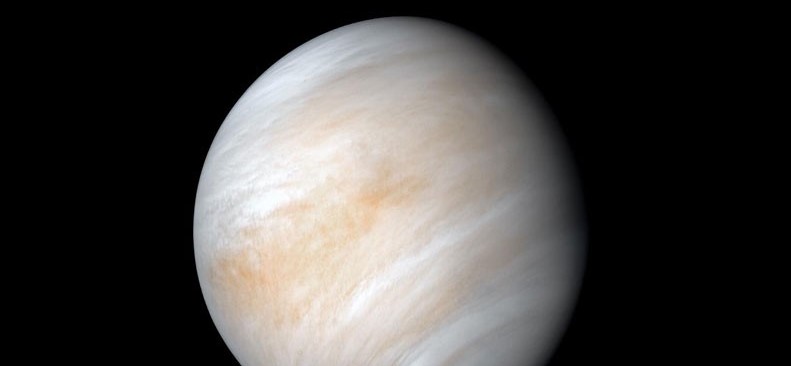Turns out Bowie may have been searching the wrong planet for signs of life.
For years, scientists have been pouring their hopes into the possibility of life on Mars. After all, it seemed to be the most habitable of Earth’s neighbours – albeit a little bit cold. In comparison, what’s been described as the “hellish” environment of Venus’ surface had long been ruled out of the search of extra-terrestrial life – until now. The recent discovery of the presence of phosphine gas in Venus’ clouds has suggested that life may actually be present on Earth’s closest neighbour.
On Earth, phosphine gas is usually associated with human chemical production or the presence of anaerobic microorganisms. Itcan be produced by the environment but only under very specific conditions – the kind of conditions which Venus’ surface and atmosphere doesn’t tend to produce. On top of this, any phosphine that is produced is likely to be broken down fairly quickly by Venus’ unforgiving environment, meaning its presence should only be detected by continuous creation of the chemical. This left scientists in a question: why is phosphine present in Venus’ clouds when all previous evidence suggests it shouldn’t be?
The obvious answer is that in the more temperate and habitable clouds of Venus’ atmosphere, many miles above the surface of the planet, there may be microorganisms present producing phosphine gas as a by-product; not dissimilar to some microbial life-forms on Earth. In short, life could be present on Venus.
However, known phosphine-production pathways modelled on a Venusian atmosphere couldn’t explain the high levels of phosphine that scientists detected, which cast some doubts onto claims that there could be life on Venus. Some scientists think it’s much too soon to jump to the conclusion that the presence of phosphine indicates life as it may be due to some unknown chemical phenomenon instead. Others have called into question whether the phosphine is even there as the claims are only based on one set of data, so an anomalous result can’t be ruled out.
Ultimately, we still don’t know for certain whether there is other life within our solar system. However, if you’re an optimist like me, it’s certainly nice to think that we may not be alone in the universe and other life-forms may be closer to home than we once thought.
By Phoebe Turner
Header image: nature.com

